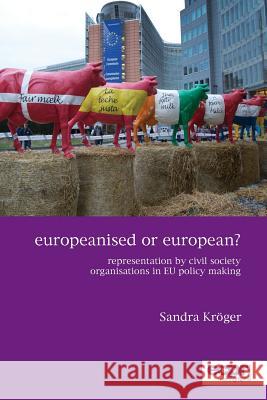Europeanised or European?: Representation by Civil Society Organisations in EU Policy Making » książka
Europeanised or European?: Representation by Civil Society Organisations in EU Policy Making
ISBN-13: 9781785522482 / Angielski / Miękka / 2016 / 238 str.
Europeanised or European?: Representation by Civil Society Organisations in EU Policy Making
ISBN-13: 9781785522482 / Angielski / Miękka / 2016 / 238 str.
(netto: 221,96 VAT: 5%)
Najniższa cena z 30 dni: 229,89
ok. 16-18 dni roboczych.
Darmowa dostawa!
This book looks at how agricultural, environmental and anti-poverty organisations engage with EU affairs; the ways they conceive of interest representation and the strategies they choose to represent their constituencies across the regional, national and European levels of governance; and how being engaged with the EU affects them. Taking a subjective approach in which the perceptions of civil society actors are centre-stage, it breaks new ground in covering the different levels of governance and combining representation theory with EU studies. Kroger finds that these groups for the most part are quite 'Europeanised', and as such can work against the institutional deficit of the EU. However, they do not defend a European interest, as opposed to regional, national or sectoral interests, are therefore not 'European' and can do little against the social deficit of the EU. This is particularly true for the redistributive policy fields of agricultural and social policy, where actors often mention the lowest common denominator policies of the EU and, as a result, often engage in bilateral interest representation strategies.











